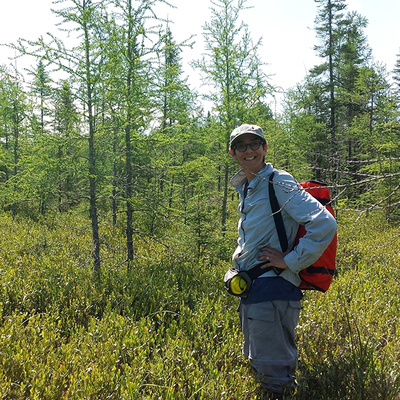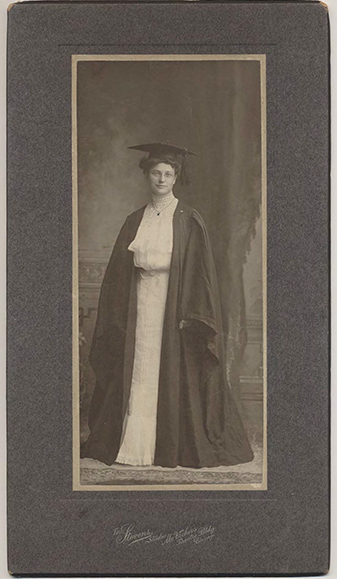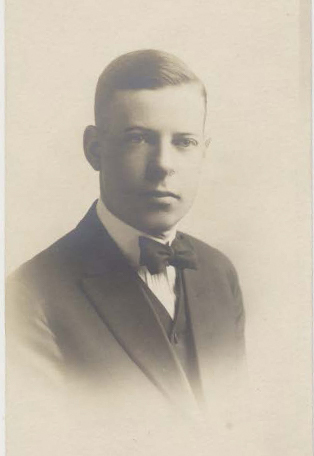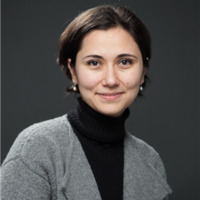February 2021 - Dr. Brenda Molano-Flores
Dr. Brenda Molano-Flores is the Senior Plant Ecologist with the Illinois Natural History Survey of the Prairie Research Institute. Dr. Molano-Flores researches plant-insect interactions, rare plant conservation, prairie restoration, and plant reproductive ecology. In addition to her work with the Illinois Natural History Survey, she also holds affiliate positions within the departments of Entomology and Plant Biology at the School of Integrative Biology, and directs the Brenda Molano-Flores Plant Ecology Lab.
From the University Archives
As a land-grant institution, the University of Illinois at Urbana-Champaign has long had a mission to enable students, professors, and other researchers to study, understand, and protect the natural environment. In particular, prairie research and preservation is an important element of teaching and learning at Illinois. As part of the Prairie Research Institute, Dr. Molano-Flores' studies support this mission. One hundred years ago, Professors Arthur G. Vestal and Wanda Pfeiffer Vestal also worked to advance knowledge of Illinois ecology and teach students about their surrounding environment.
Wanda Pfeiffer Vestal was a professor of Botany at the University of Illinois alongside her husband, Arthur G. Vestal, during the first decades of the twentieth century. During a time when it was uncommon for women to pursue PhDs, Pfeiffer received her doctoral degree from the University of Chicago in 1908. Shortly thereafter, she began teaching botany as an assistant professor at the University of Chicago. Several years later, she also began teaching classes in plant pathology.
During her time as an instructor of plant pathology, Wanda Pfeiffer met and married Arthur G. Vestal, who received his PhD in Botany from the University of Chicago in 1915. The couple had several children and traveled around the United States for several years while Arthur taught botany at universities as diverse as the Eastern Illinois State Normal School, the University of Montana, and Stanford. Eventually, the pair returned to Illinois where Arthur became a Professor of Botany and Wanda resumed teaching, also in the Department of Botany.
Arthur Vestal had a wide range of research interests, and over the course of his lifetime, he published over 60 academic papers on various topics. Ecology and plant geography, as well as the relationship between the prairie and surrounding ecoystems, were particularly important topics to him. In his notebooks outlining his class lectures, Dr. Vestal made sure to illustrate the importance of writing detailed notes, taking care to not disturb the environment, and observing the different factors that all had an impact on plant life.
Like Dr. Molano-Flores and other researchers at the Prairie Research Institute and other units at the University of Illinois at Urbana-Champaign, understanding the dynamics between prairies—characterized by their flat grasslands and lack of trees—and forests was especially critical to Dr. Arthur Vestal and Dr. Wanda Pfeiffer Vestal. Even as an undergraduate student at the University of Illinois, Arthur Vestal was fascinated by the prairie's resistance to seed dispersal from trees. Examining a vacant lot in Champaign—404 E. Green Street, where today you can find a variety of campustown restaurants—Vestal writes about the distinction between a cluster of trees and the local bluegrass, and hypothesizes that this was an excellent setting to witness "survival of the fittest" in person.
Although Dr. Wanda Pfeiffer Vestal did not publish as much as her husband and remains relatively obscure in the Arthur G. Vestal Papers at the University of Illinois Archives, her academic and teaching achievements were remarkable for the time, and she remains an important part of the University of Illinois' legacy of women in science.




